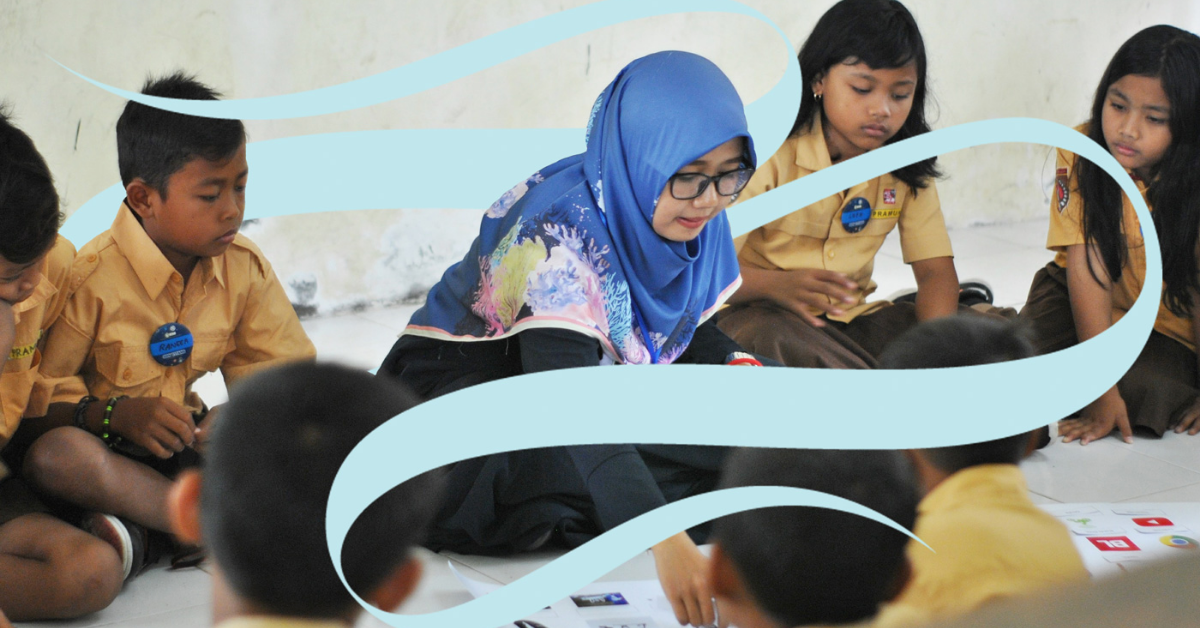
Achieving effective global governance requires more than just institutional changes. Without widespread public support, fundamental change is not possible. Education will be an indispensable part of any global governance reform.
How can new global institutions and legislative processes be established if those within the institutions and responsible for implementation do not share the new vision, values, insights, skills and understanding necessary for an ambitious new system for global good? Enlightened leadership is needed. All must recognize that national diversity and autonomy today are best protected by common action against global threats, replacing the outmoded concept of national sovereignty.
Beyond institutional reform, the public response to the existential challenges of our present unsustainability, including climate change and biodiversity loss, needs to be channeled and informed through education. Public education should build an understanding of our common goals and the key principles behind this new international order. It also needs to diffuse fears and concerns that can quickly solidify into resistance to change. The rapid expansion of information technologies makes it possible today to address world public opinion in ways that were previously impossible, requiring credible sources of science and expertise to overcome attempts at manipulation.
The peoples of the world must come to see their global common interest, and one of the best definitions of that common interest is the UN Sustainable Development Goals. While these goals have been universally accepted at the governmental level, bringing them to the people must come through education for sustainable development.
During the 2020 pandemic, we have seen the rapid expansion of online education and the capacity to make education more flexible and accessible. While there is still a digital divide to be overcome, the potential is there to provide global support and content to educational systems around the world. This can include the concept and necessity of global governance and its potential to raise the standards of global education and of participation.
UNESCO has taken the lead on Goal 4 Quality Education for All of the SDGs, in particular on target 4.7 to ensure that learners acquire the knowledge, skills, values and attributes needed to achieve the Sustainable Development Goals. It has prepared objectives and competencies for a core curriculum on sustainable development. With the rapid spread of online learning, we now have the tools to integrate into school systems around the world the elements of a universal curriculum about the global need for sustainability in our resource use, greenhouse gas emissions and economy. Governments need to come to see the importance of adapting their educational systems to respond to international challenges.
The following sections explore how such a new standard of education can support the implementation of three Sustainable Development Goals: Gender Equality, Climate Action and Reduced Inequalities.
Education for Gender Equality
One central principle of a new curriculum for public education is gender equality — Goal 5 of the Sustainable Development Goals. The concept of gender equality, when promoted both formally and informally across the world population, significantly improves the livelihoods of people everywhere.
Education for gender equality involves more than simply addressing gender discrimination and eliminating discriminatory policies and practices. It includes the development of a new set of skills and attitudes, acquired through public education, that continually reinforces this equality and the health of a community. These contribute to strengthening local governance, developing the ability to reflect collectively with people of all genders and backgrounds, and reinforcing the practice of consultation and common action in neighborhoods.
Such education for gender equality will lead people to understand their shared humanity and go beyond simply accepting gender to value the contributions of all genders and pursue reform on a neighborhood, community, national and then global scale.
Education for Climate Change
The global pursuit of economic growth without consideration for social and environmental costs has overshot planetary boundaries and is destabilizing the Earth’s life-support systems, with climate change as one obvious symptom. The combination of vested interests spreading disinformation and the lack of access to reliable science has fed a conflicting discourse on climate change, leading to misunderstandings, lack of trust, conspiracy theories and overall ignorance of the phenomena happening everywhere, contributing in turn to the indecisiveness of world leaders in addressing climate change.

A global curriculum of education for climate change can draw from new technologies to provide scientific perspectives on the state of our planet in an accessible way to people of all ages, social classes, and backgrounds. It will allow students to see the past and present impacts of climate change and predict and model future consequences, as well as to make informed decisions about how they can contribute to climate action.
Education for climate change will lay the foundation for a global understanding of the interconnections of all human beings and their natural environment, normalizing ways of thinking that uphold collective wellbeing over the financial profit of a few, and respecting the Earth’s value as humanity’s home and the source of both material resources and the beauty we need in our surroundings to live fulfilling lives.
Education for Reduced Inequalities
The present global economic system, despite significant poverty reduction in a few countries, has left half the world population struggling to make ends meet, while the wealth generated has been concentrated more and more at the top. The pandemic has only accelerated this trend with massive increases in unemployment and extreme poverty while the rich have become richer. The most vulnerable groups, including older persons and those with disabilities, children, women, migrants and refugees have been hit hardest by the pandemic. Education has been disrupted for billions, and a generation of young people sees little hope in the future.
Education for Reduced Inequalities would make the public more aware of the injustices in the present system, and the need for fundamental reforms including better wealth redistribution and a social safety net or guaranteed minimum income, and provisions to ensure access to meaningful employment so that everyone can develop and use their skills and talents to earn a living and contribute to society. People would see the pressing need for global governance of the economy to meet this end, able to reduce inequality within and among countries, to manage the risks of financial crises and other excesses of a financial system out of control, and to maintain the necessary support to developing countries to ensure that no one is left behind. The pandemic has demonstrated that no one is safe until everyone is safe, requiring global action in a spirit of justice and equity.


